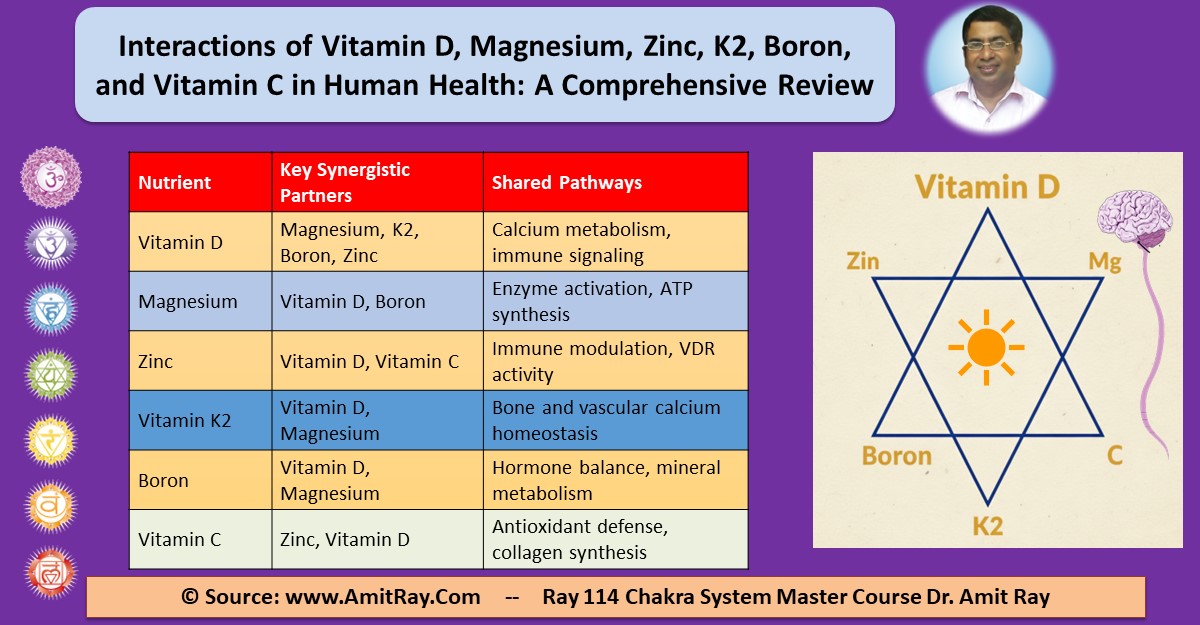Abstract
Human health depends on an integrated network of biochemical and cellular interactions regulated by micronutrients. Vitamins and minerals act as cofactors, coenzymes, and signaling mediators that sustain metabolic homeostasis, immune competence, and tissue integrity. Increasing evidence emphasizes the synergistic and interdependent nature of micronutrient metabolism rather than isolated effects.
Among these, vitamin D, magnesium, zinc, vitamin K₂, boron, and vitamin C form a functional cluster influencing calcium regulation, immune function, redox balance, and hormonal modulation. Deficiency or imbalance in one can diminish the bioefficacy of others, producing systemic dysregulation.

This review explores the individual and interactive roles of these six micronutrients in bone metabolism, immune response, cardiovascular integrity, and antioxidant defense. Vitamin D facilitates calcium absorption; magnesium enables its enzymatic activation; zinc supports immune signaling and gene stability; vitamin K₂ directs calcium to bone while limiting vascular calcification; boron modulates steroid hormones and vitamin D bioavailability; and vitamin C provides antioxidant protection and collagen support.
Collectively, they operate as a metabolic network in which magnesium and boron enhance vitamin D activity and vitamin K₂ complements it in calcium homeostasis. Integrating mechanistic and clinical evidence, this review advocates a systems-based approach to micronutrition, highlighting the need for combined supplementation strategies, preventive applications in chronic disease, and future randomized trials to evaluate their synergistic potential.
